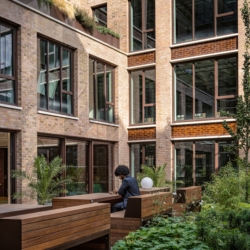April 29, 2025
Regional BCO Awards show how London’s best offices are redefining the way we work
 In a city where tradition meets the cutting edge, London’s office spaces are undergoing a quiet revolution. At the British Council for Offices (BCO) Regional Awards, held today at the London Hilton on Park Lane, seven projects were celebrated—not just for their architectural merit, but for what they reveal about the evolving needs of workers, employers, and communities alike. This year’s winners, chosen from across the capital, signal what the BCO claim is a new era of workplace thinking—where sustainability, community engagement, and human experience carry as much weight as style and status. The awards recognise excellence in the design, fit-out, operation and environmental responsibility of London’s best offices. The 2025 cohort offers more than inspiration; it sets a bold new benchmark for the offices of tomorrow. (more…)
In a city where tradition meets the cutting edge, London’s office spaces are undergoing a quiet revolution. At the British Council for Offices (BCO) Regional Awards, held today at the London Hilton on Park Lane, seven projects were celebrated—not just for their architectural merit, but for what they reveal about the evolving needs of workers, employers, and communities alike. This year’s winners, chosen from across the capital, signal what the BCO claim is a new era of workplace thinking—where sustainability, community engagement, and human experience carry as much weight as style and status. The awards recognise excellence in the design, fit-out, operation and environmental responsibility of London’s best offices. The 2025 cohort offers more than inspiration; it sets a bold new benchmark for the offices of tomorrow. (more…)





































April 30, 2025
The world needs amazing leaders like never before. But where are they?
by Dana Maor • Business, Comment, Workplace